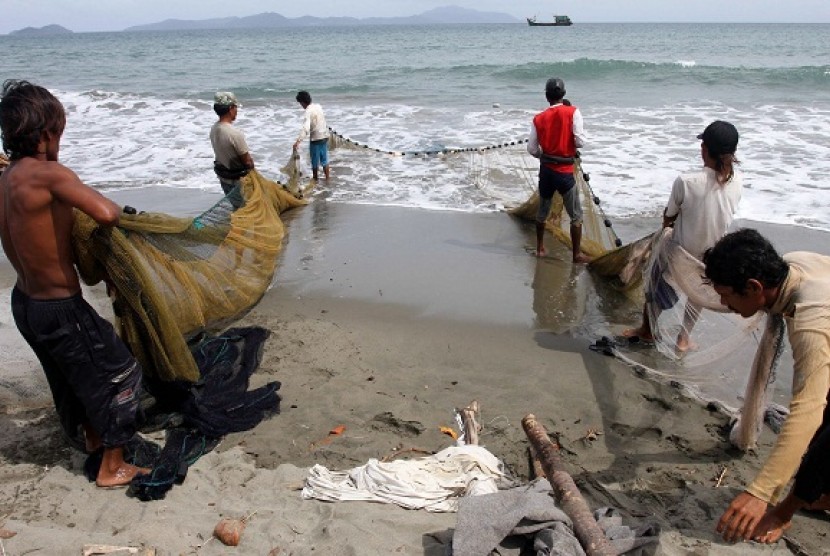REPUBLIKA.CO.ID, JAKARTA - Indonesia's Ministry of Maritime Affairs and Fisheries (MMAF) has urged the Food and Agricultural Organization (FAO) to give priority to small fishermen in its guideline policy, an executive of the ministry said.
"The MMAF's delegates to a FAO council's meeting asked the world organization to give priority to the improvement of small-scale fishermen's lives," Anang Noegroho, director of the statistics data and Information Center of the MMAF, said in text message to Antara here on Saturday.
Anang said that during the 148th FAO Council Session, which took place from December 2 to 6 in Rome Italy, the MMAF delegates, led by MMAF's Secretary General Sjarief Widjaja, stressed the importance of FAO including in its guidelines priorities for small-scale fishing and coastal communities.
This MMAF's proposal showed Indonesia's concern and support in the acceleration of the completion of the FAO Technical Consultation on International Guidelines for Securing Sustainable Small Scale Fisheries in the Context of Food Security and Poverty Eradication.
According to Anang, Sjarief said that FAO Guidelines will serve as direction for FAO member countries in terms of policies for small-scale fishermen.
These guidelines are very important for Indonesia, whose fishing industry consists of more than 90 percent small-scale fishermen.
FAO Guidelines will be effective as of February 2014. In addition to standards of living issues, MMAF stressed the importance of gender equality, where the MMAF encourages FAO to provide a special space for gender issues in the FAO International Guidelines for Securing Sustainable Small Scale Fisheries, he said.
In Indonesia, the gender issue has become an important concern in the development and empowerment of small-scale fishermen and coastal communities.
Commenting, the Chairperson of the Program Committee conveyed his appreciation to Indonesia and Bangladesh in an effort to encourage gender replicating programs that have been carried out in other FAO's member states.
"One of the recommendations proposed from this meeting is the establishment of the Cross cutting team that focuses on capacity building," the Chairperson explained.
Sjarief, according to Anang, said MMAF delegation also supports the food resilience and nutritional program, to begin after 2015.
MMAF also discussed the importance of the fisheries sector as one of the pillars of food resilience, particularly in addressing the needs of animal protein.
The fisheries sector plays an important role in supporting food resilience, where the world's protein needs can be met by fishery resources, both from fisheries and aquaculture.
"FAO also appreciates Indonesia's initiative in improving human resource capacity, particularly to support the South-South cooperation programs providing benefits to 28 FAO member countries, especially in the field of aquaculture, small-scale fisheries, post-harvest, and the management of small islands," Sjarief was quoted as saying.
Sjarief added, in addition to the FAO Council Session, FAO also hosted a side event called the Global Initiative on Blue Economy/Blue Growth in Support of Food Security, Poverty Alleviation and Sustainable Management of Aquatic Resources.
This side event looked at the Indonesian experience and how it could be applied to other FAO member countries.
The MMAF delegation also affirmed their support for the implementation of the Global Actions Summit for Food Security and Blue Growth, to be held in The Hague, April-May 2014. "Indonesia has also enlisted the FAO member countries support for the Bali Communiqu?, as a result of the Asian Conference on Oceans, Food Security and Blue Growth in June 2013 in Bali," he added.


